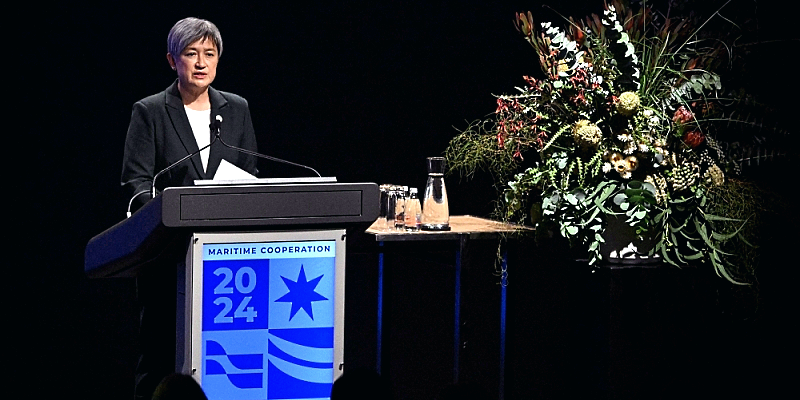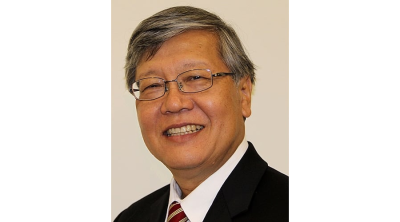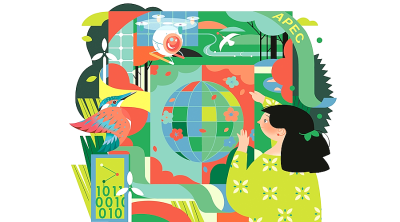
MELBOURNE: The leaders of Southeast Asian nations and Australia are expected to jointly denounce “the use of force” in regional disputes during talks that kicked off Monday in Melbourne, a collective swipe likely to irritate China.
Beijing’s increasingly aggressive stance in the South China Sea was high on the agenda as leaders from the 10-nation ASEAN bloc began a “special summit” with their Australian counterparts.
“We strive for a region where sovereignty and territorial integrity is respected,” a draft joint ASEAN-Australia statement obtained by AFP read.
“We strive for a region where differences are managed through respectful dialogue, not the threat or use of force,” the statement added, without mentioning China by name.
Territorial disputes in the vital trade corridor have escalated in recent months, with China baring its teeth in areas also claimed by ASEAN members such as the Philippines and Vietnam.
Australia’s Penny Wong, the host foreign minister, said nations must shoulder a joint responsibility to keep the region “peaceful, stable and prosperous.”
“We face destabilizing, provocative and coercive actions, including unsafe conduct at sea and in the air and militarization of disputed features.”
While the bloc’s position on the South China Sea appeared to be largely settled, there was the prospect of tense discussions behind closed doors on sensitive matters such as the war in Gaza.
A draft joint declaration obtained by AFP indicated significant differences in opinion regarding the ongoing conflict — which poses a tricky issue for the consensus-bound ASEAN forum.
Some 40 percent of the world’s Muslim population calls Southeast Asia home, and forum heavyweights Indonesia and Malaysia are among the strongest supporters of the Palestinians on the international stage.
But other ASEAN nations such as Singapore have closer diplomatic and economic ties with Israel — and are less eager to stoke controversy.
“I think the general consensus is calling for a ceasefire,” Malaysian Prime Minister Anwar Ibrahim told reporters in Melbourne on Monday.
“Probably avoiding the contentious issues between Palestine and Israel, but at least for now (looking at) the ceasefire and humanitarian assistance.”
The draft showed objections to suggested language on the “use of starvation” in the Gaza Strip and calls for a “durable” ceasefire.
The draft declaration also indicated that discussions about the deteriorating situation in Myanmar were similarly bogged down in disagreement and progressing with difficulty.
‘China-phobia’
The three-day summit is also expected to focus on economic cooperation, as countries such as the Philippines and Australia look to insulate their economy against retaliation from China.
Philippines Foreign Minister Enrique Manalo told AFP that economic resilience was a crucial part of ensuring security and sovereignty are upheld.
As part of that effort, he said the Philippines hopes to launch formal free trade agreement negotiations with the European Union “very soon.”
The Philippines is focused on creating “greater economic security and economic resiliency, which in turn contributes to your own national security,” Manalo said.
Other ASEAN members, however, have warned that China must play a role in the region’s economic growth — and that members should not be dragged into any dispute between Beijing and Washington.
“If they have problems with China, they should not impose it upon us,” the Malaysian prime minister said.
“We do not have a problem with China. The China-phobia is in the West.”
Minerals boon
Far more likely to generate consensus during the summit are issues of climate change and energy security.
Southeast Asia’s hunger for energy is largely sated by fossil fuels, while Australia remains one of the world’s biggest exporters of gas and polluting thermal coal.
Both are increasingly eager to pivot toward renewable energy, making the most of natural blessings, such as bulging deposits of critical minerals.
“ASEAN countries need more energy if they are going to continue developing their economies,” said Rahman Yaacob, a regional analyst with Australia’s Lowy Institute.
“Australia could be a source of that energy.”
Indonesia and the Philippines are two of the world’s largest producers of nickel, a key ingredient in the production of batteries for electric cars.
Another key battery metal, lithium, is found in vast quantities scattered throughout Australia.
Jakarta and Canberra have already started exploring how they could mesh these advantages to boost electric vehicle manufacturing.
ADVERTISEMENT
ADVERTISEMENT








































